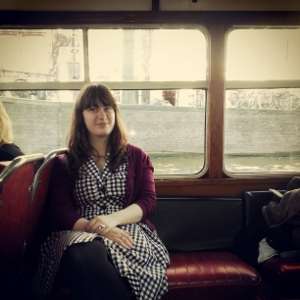Tonight’s The Rest is Noise programme, containing important pieces by British composers written in the 1990s, gave an impression that was perhaps one-sided, but still compelling. All pieces were rhythmically powerful, and the shining star of the evening was the percussion section, on which all four pieces relied heavily. The London Philharmonic Orchestra and Vladimir Jurowski were expert guides through these pieces, with Thomas Adès’ Asyla the high point.
Reversing the order in the first half of the concert, the LPO started with James MacMillan’s Veni, Veni, Emmanuel, a percussion concerto written in 1992 for the evening’s soloist, Evelyn Glennie. It is an exciting piece, full of wondrous rhythms and recurring melodies that become distorted yet remain instantly recognizable. Glennie’s performance was impressive yet the percussion completely overpowered the orchestra too often. In “Dance”, for example, you would expect the percussionist and orchestra to melt together into one organic whole, thereby making the music all the more persuasive, yet the strings were much too soft for this to come to fruition. The ending, with Glennie on tubular bells, was dramatic but lacked emotional impact, the music dying out without a lasting effect.
Julian Anderson’s The Stations of the Sun was another tremendously rhythmic piece. With many jazz-like elements and a significant amount of percussion, it was a satisfying follow-up to Veni, Veni, Emmanuel. Unfortunately, the strings of the LPO again seemed a bit too subdued, lacking intensity. Perhaps this is partly because of the music itself; despite all the seemingly exciting elements in the piece, they did not really add up to make a commanding whole.
How different was Mark-Antony Turnage’s Evening Songs. Written in 1998, it was the most understated piece of the evening, though one of the most impressive. Hints of jazz were present, as always in Turnage’s work, though the work’s defining feature is its transparent and dynamic sound. First violinist George Tudorache treated us to some mesmerizing solos, and again the percussion section were essential in bringing the performance to life. The third movement was particular mesmerising, with a beautiful atmosphere that slowly created more and more harmonies, leading to a big, powerful climax. The beautiful sound of the strings throughout the performance of Evening Songs redeemed their earlier playing and contributed to a stunning performance.
The showpiece of the evening was Thomas Adès’ Asyla, a fantastic piece of music. It is a work of contrasts, with the violins often playing in the highest registers with the basses and brass creating a dark, brooding undercurrent throughout the piece. Asyla contains some beautifully quiet writing, especially for strings, yet its most exciting moment is the third movement, “Ecstasio”. A depiction of London nightlife, “Ecstasio” is one of those rare pieces that are both infinitely catchy and confusing. With pounding percussion and jittery woodwinds, you cannot help but bop your head along to its intense rhythms and thrilling outbursts. The LPO were absolutely spot on, with the percussion section and brass carrying the weight but also faultless playing from the rest of the orchestra.


